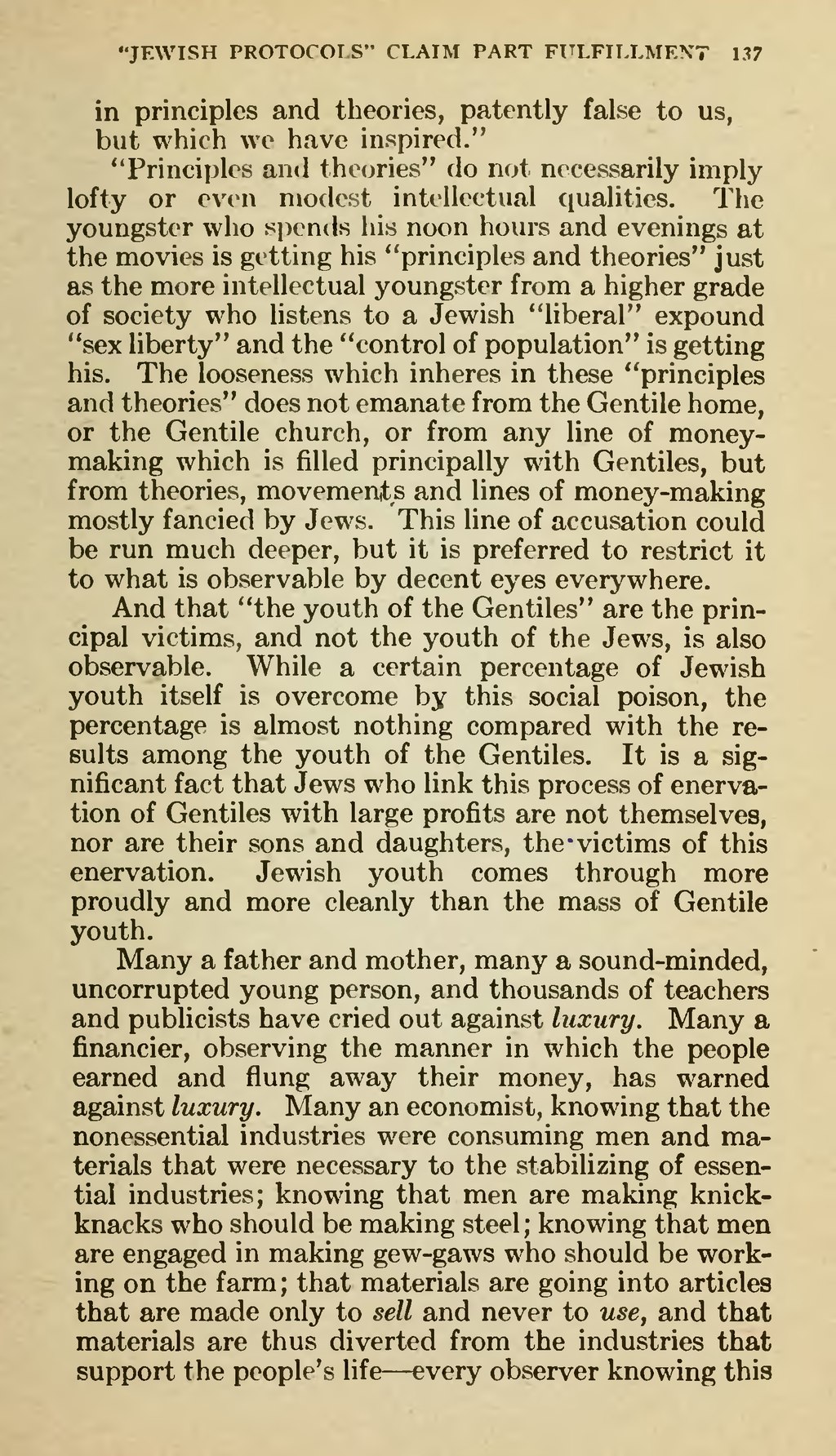principles and theories, patently false to us but which we have inspired.”
“Principles and theories” do not necessarily imply lofty or even modest intellectual qualities. The youngster who spends his noon hours and evenings at the movies is getting his “principles and theories” just as the more intellectual youngster from a higher grade of society who listens to a Jewish “liberal” expound “sex liberty” and the “control of population” is getting his. The looseness which inheres in these “principles and theories” does not emanate from the Gentile home, or the Gentile church, or from any line of money-making which is filled principally with Gentiles, but from theories, movements and lines of money-making mostly fancied by Jews. This line of accusation could be run much deeper, but it is preferred to restrict it to what is observable by decent eyes everywhere.
And that “the youth of the Gentiles” are the principal victims, and not the youth of the Jews, is also observable. While a certain percentage of Jewish youth itself is overcome by this social poison, the percentage is almost nothing compared with the results among the youth of the Gentiles. It is a significant fact that Jews who link this process of enervation of Gentiles with large profits are not themselves, nor are their sons and daughters, the victims of this enervation. Jewish youth comes through more proudly and more cleanly than the mass of Gentile youth.
Many a father and mother, many a sound-minded, uncorrupted young person, and thousands of teachers and publicists have cried out against luxury. Many a financier, observing the manner in which the people earned and flung away their money, has warned against luxury. Many an economist, knowing that the nonessential industries were consuming men and materials that were necessary to the stabilizing of essential industries; knowing that men are making knick-knacks who should be making steel; knowing that men are engaged in making gew-gaws who should be working on the farm; that materials are going into articles that are made only to sell and never to use, and that materials are thus diverted from the industries that support the people’s life—every observer knowing this
